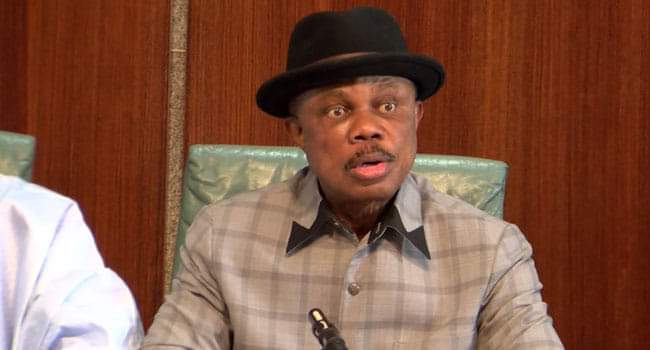Anambra State under the administration of former Governor, Willie Obiano achieved remarkable fiscal discipline that kept the financial position of the state in good standing.
In 2021 Anambra ranked 3rd in financial fiscal performance ranking, being second best among the Southeastern states.
The former Governor, who governed Anambra from from 2014 to 2022, achieved one of the lowest debt positions among states within the Federation.
Large part of the funds borrowed from development partners were channeled to physical infrastructure.
In its State of The States report 2021, BudgiT disclosed that while in office, Obiano prioritized capital infrastructure investment and recorded the smallest operating expenses.
The BudgiT report showed that as a low-debt state, Anambra’s total debt stood at N100.05bn (inclusive of $108.09m external debt). The state’s total debt per capita stood at N16,343, significantly lower than the country average of N27,316.
It explained that Anambra state under Obiano had one of the smallest domestic debts in the country ranking 24th by size.
BudgiT said that despite fiscal shocks induced by the Covid-19 pandemic, the state’s year-on-year Internally Generated Revenue (IGR) increased by 6.22% from N26.37bn in 2019 to N28.01bn in 2020, compared to a 36.59% growth witnessed between 2018 and 2019 when the state pulled in N19.31bn and N26.37bn, respectively in both years.
It said Anambra state under Obiano was one of five states within the Federation that prioritized investment in capital infrastructure over investments in operating expenses in 2020. Other states to achieve this feat in 2020 are Ebonyi, Rivers, Cross River and Kaduna.
Out of Anambra state’s N110.33bn 2020 spending, 57% or N63.23bn went for capital expenditure while operating expenses gulped N43.77bn and N3.32bn on loan repayments.
The state’s 2020 capital expenditure of N63.23bn represents a 27.71% increase from the N49.51bn capital spending in 2020 making it one of the 19 states in the country to increase their capital expenditure even as Covid-19 pandemic dealt blows, to varying degrees, to all states.
At N43.77bn, Anambra had one of the smallest operating expenses for running the state government amongst all 36 states. It cut its overhead component of its operating expense by 22.11% from N23.55bn in 2019 to N18.34bn in 2020.
The report showed that with a total debt burden of N1.04tn, up by 19.73% from N871.33bn in 2019, Lagos State was the most indebted state out of the 36 states. Lagos also had the highest external debt of $1.41bn, giving it the highest exposure to risks of exchange rate volatility.
Despite an overall decent fiscal performance in 2020, Anambra still needs to take critical measures to improve its resilience by boosting foreign trade in the state, increase economic prosperity.
BudgiT said that with a current total volume of 203 trillion cubic feet (N192.85tn) of Natural Gas in the country (and the largest reserves on the continent), Anambra state can facilitate the extraction of its own local potential by engaging with the federal government on extraction.
It added that Anambra also has potential to produce rice, as the latter’s global export market was worth $24.5bn (or N13.4trn) in 2020.
BudgiT advised that Anambra state can collaborate with Ebonyi, Kebbi and Benue states to form a rice farming and processing economic belt.
This, it said can aim to meet local demand and claim up to 10% of the global export market per year while leading to the creation of a significant number of jobs.
